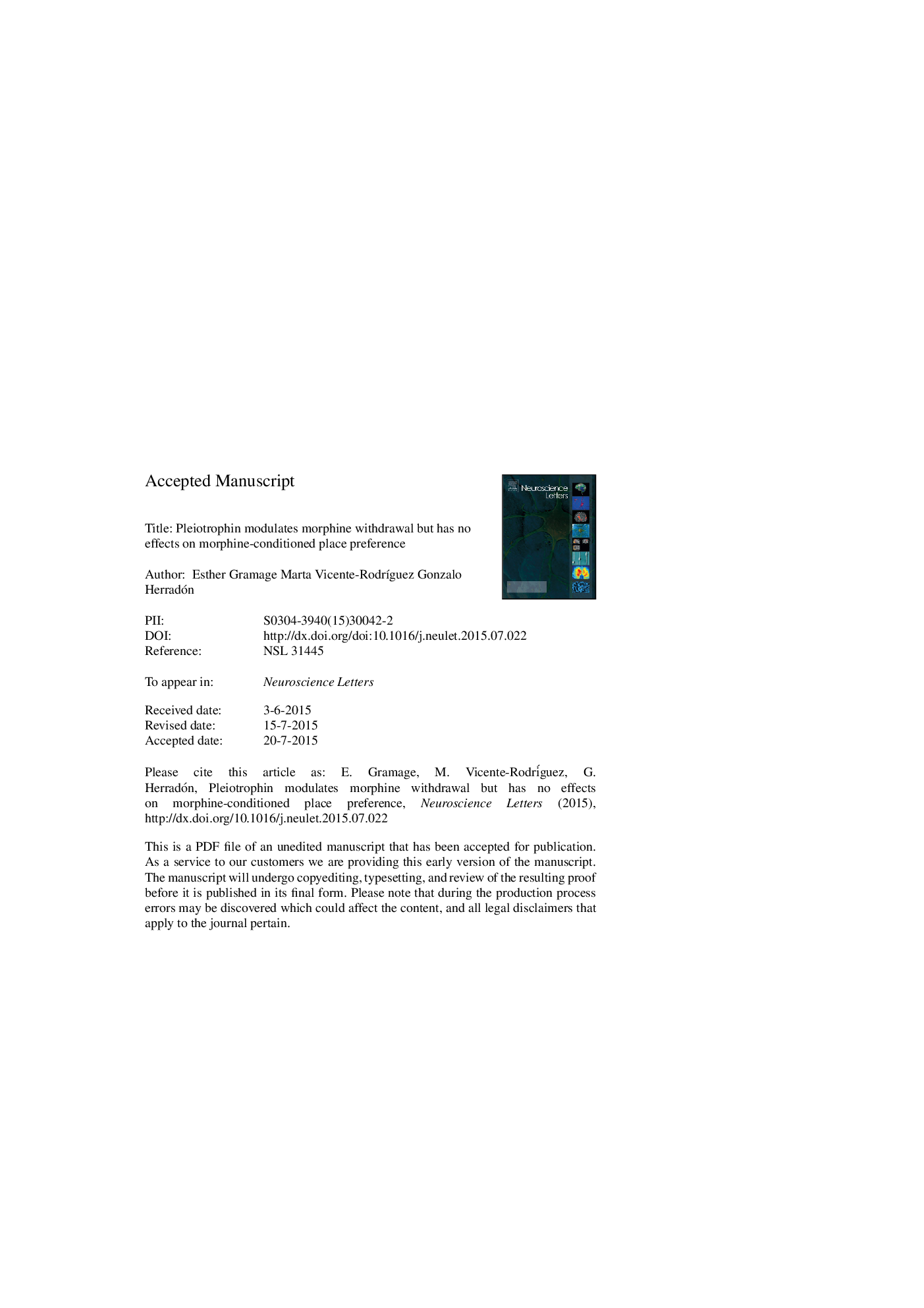| Article ID | Journal | Published Year | Pages | File Type |
|---|---|---|---|---|
| 6280405 | Neuroscience Letters | 2015 | 22 Pages |
Abstract
We used the Conditioned Place Preference (CPP) paradigm in PTN genetically deficient (PTNâ/â) and wild type (WT) mice to assess the rewarding effects of morphine in absence of endogenous PTN. Second, to study if PTN may be involved in morphine physical dependence, naloxone-precipitated withdrawal syndrome was induced in PTNâ/â and WT morphine dependent mice. Although the increase in the time spent in the morphine-paired compartment after conditioning tended to be more pronounced in PTNâ/â mice, statistical significance was not achieved. The data suggest that PTN does not exert an important role in morphine reward. However, our results clearly indicate that PTNâ/â mice develop a more severe withdrawal syndrome than WT mice, characterized as a significant increase in the time standing and in the total incidences of forepaw licking, forepaw tremors, wet dog shake and writhing. The data presented here suggest that PTN is a novel genetic factor that plays a role in morphine withdrawal syndrome.
Related Topics
Life Sciences
Neuroscience
Neuroscience (General)
Authors
Esther Gramage, Marta Vicente-RodrÃguez, Gonzalo Herradón,
